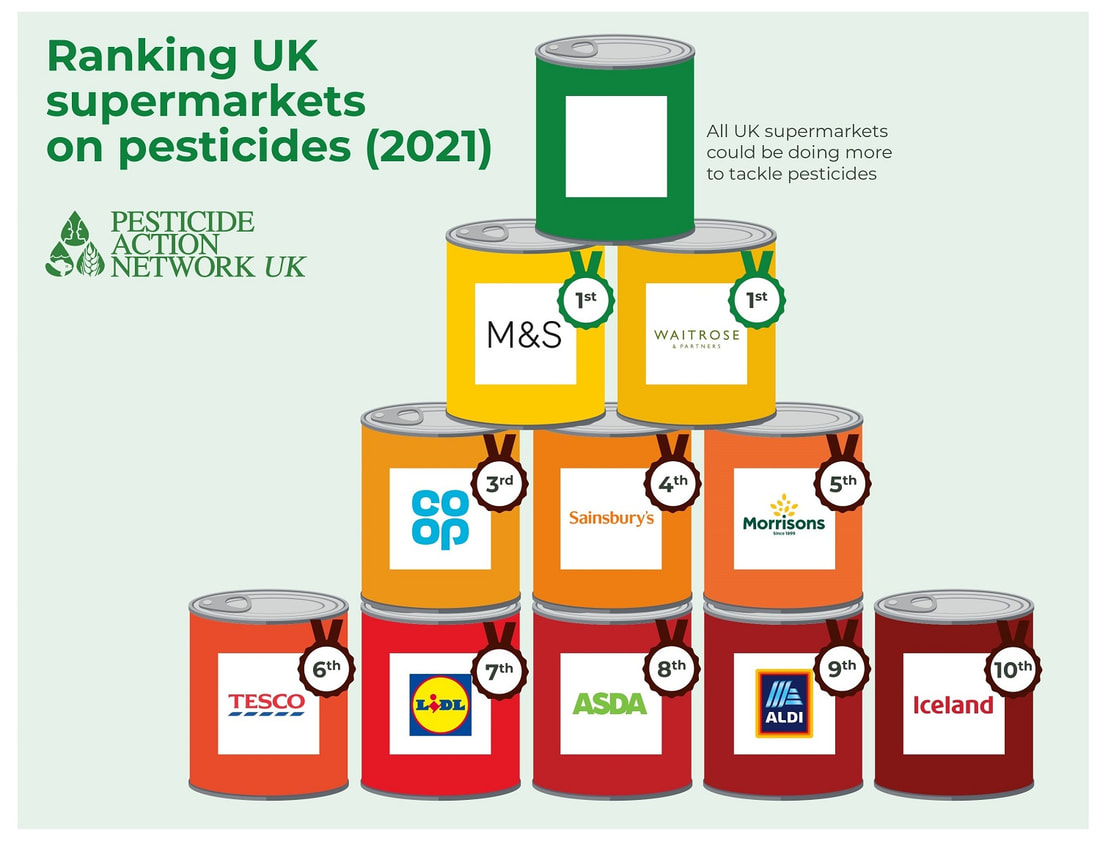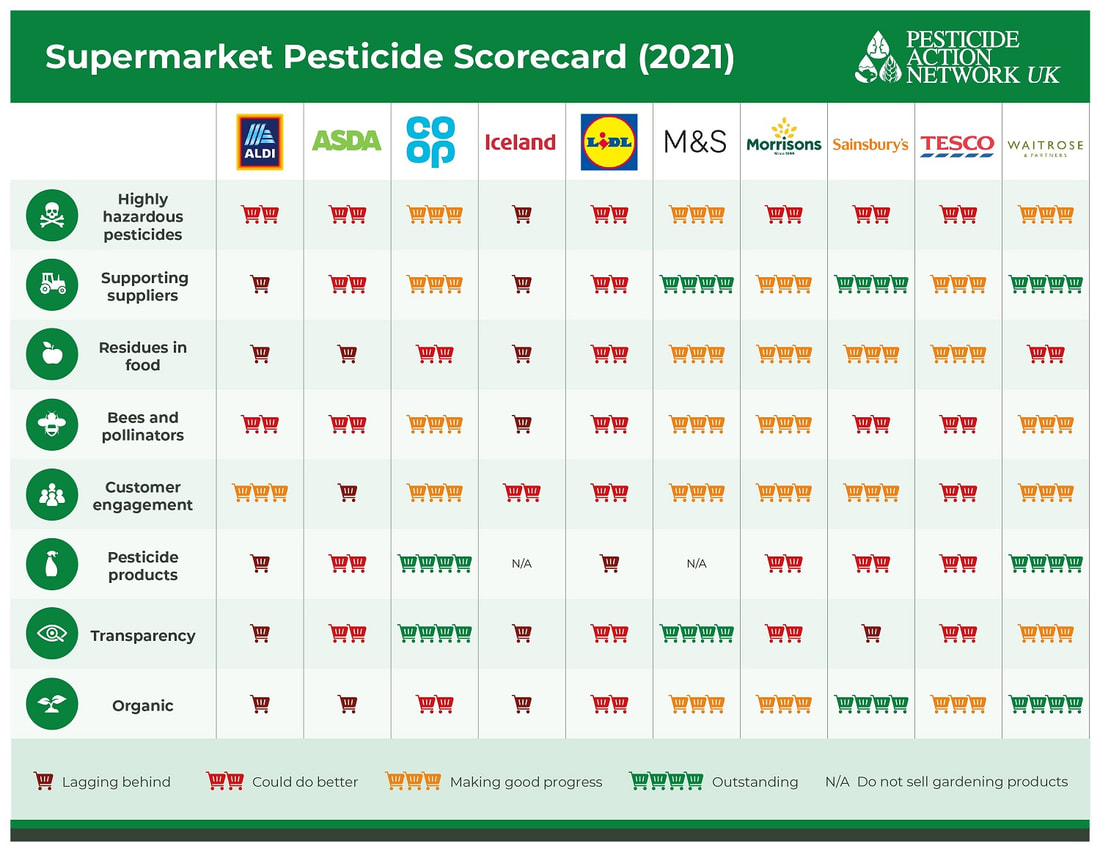|
PAN UK exposes massively the UK supermarkets by doing their own research on pesticides residue left in our food. Please, refer to source at the bottom of the article to read the whole article as we present only parts of the article. UK supermarkets are not doing enough to protect human health, wildlife or the environment from pesticides. Highly toxic pesticides continue to be used within the supply chains of all of the UK’s largest ten supermarkets. The chemicals in question include carcinogens and hormone disruptors, as well as bee-toxins and water contaminants shown to harm aquatic species. Since the launch of our previous ranking in 2019, PAN UK has spent the past two years advising and assisting the supermarket sector on how to reduce pesticide-related harms. In 2021, we have once again surveyed and ranked the UK’s top ten supermarkets on their efforts to tackle pesticides. We found that they could all be doing more to reduce pesticide-related harms linked to their global supply chains. But we also discovered that some supermarkets are doing much better than others, and that some have made great progress in the past two years. The ranking in more detail:PAN UK’s ranking is based on an assessment of how each supermarket is doing on eight key topics related to pesticides. Take a look at our Pesticide Scorecard below to see how your supermarket ranked on these specific areas. Note that we didn’t reward supermarkets for following the law – points were only given for measures that go beyond legal compliance. The Pesticide Scorecard also reveals that the UK supermarkets sector is making much more progress on some topics than others. For example, the majority of supermarkets have become much more transparent with the public about their approach to pesticides over the past two years. In addition, two of the eight supermarkets that stock gardening ranges have now stopped selling high-risk pesticide products (such as weedkillers). However, in other areas the sector has much work to do. For example, bee-toxic neonicotinoids continue to be used within the global supply chains of all of the top ten UK supermarkets, as do pesticides which pose a risk to the health of farmers and agricultural workers. As a result, the sector scored more poorly in these areas, with no supermarket’s efforts being ranked as ‘Outstanding’. Why are we running this campaign?Pesticides can drive irreversible harms to both human health and the environment. The evidence linking pesticides to diseases such as cancer and Parkinson’s increases year-on-year. Meanwhile, recent studies have named pesticides as one of the key drivers of biodiversity losses which have placed one million species at risk of extinction. The evidence clearly shows that we urgently need to reduce our pesticide use and UK supermarkets have a key role to play. With their sprawling supply chains and powerful influence over how food is produced, they are uniquely positioned to drive a wholesale shift away from pesticides and towards non-chemical alternatives, not just in the UK but globally. PAN UK is keen to continue working directly with UK supermarkets to help them implement the kind of changes we so urgently need to move towards a healthier and more sustainable future. Source: https://www.pan-uk.org/supermarkets/ FOS Squared comments on the article: Once again Lidl, Aldi and Asda the so called cheap supermarkets appear to care for the profit and not the health of their customers. Lidl has been known for the toxic solvent xylene found in the sauce. More on Xylene in sauce in Lidl here Cheap supermarkets Lidl, Aldi, Iceland, and Asda appear to care for profit rather than food safety and pesticides residuesComments are closed.
|
Archives
January 2023
Categories
All
|


 RSS Feed
RSS Feed
